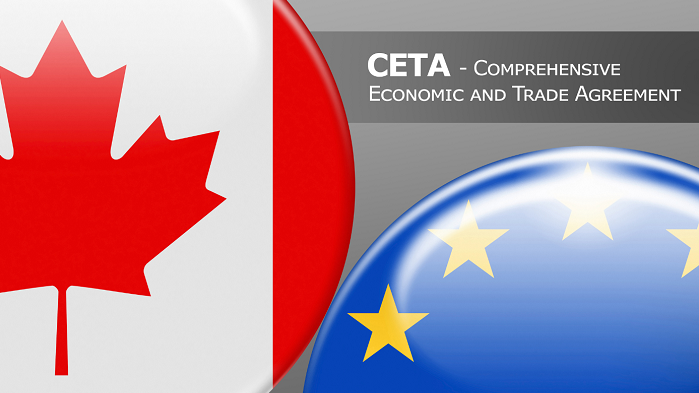
|
21 September 2022 marked five years since the provisional application of the Comprehensive Economic and Trade Agreement (CETA) between the EU and Canada. Following this milestone, the Commission will publish an evidence-based evaluation of CETA analysing its economic, social and environmental impact after its five years of provisional application. As a keen and long-standing supporter of CETA, our sector has seized this opportunity to reiterate all the benefits stemming from this agreement and how important it remains for our objectives of exports’ diversification and our ability to keep supporting jobs and growth in both the EU and Canada. The Canadian market is EU spirits’ 6th market outside of the EU, with exports of a value of €232.5 million in 2023. Overall, since CETA’s entry into force in 2017, the value of EU spirits exports to Canada has increased by 15%. While this may seem to be a modest increase, we must stress that 2023 was a difficult year, partly due growing inflation and a less favourable economic context in Canada in the last year. These recent difficulties should not overshadow the steady increase in the value of our exports to Canada in the last decades, year after year. It is also important to note that tariffs on spirits had been lifted pre-CETA, which concurred with a significant growth in value of our exports to Canada before the provisional entry into force of the agreement. Over the years, CETA has delivered a number of tangible benefits to EU spirits producers. Improvements in treatment at provincial level – through positive developments in the field of cost of service differentials and the removal of certain sources of discrimination, as well as improvements in the way GIs are protected are some of the concrete benefits that come to mind. Above all, CETA provides a platform to address and resolve remaining issues faced by our members – including at provincial level and in relation to GIs protection - through dialogue between EU & Canadian authorities, via the CETA Trade in Goods Committee and the CETA wine & spirits Committee. While there are still, for instance, significant sources of discrimination with local spirits which need to be tackled in order to create fair competition between EU & local spirits, the Wine & Spirits Annex in the CETA agreement (Annex 30-C) provides a legal basis as well as a political commitment from Canadian authorities for their gradual elimination. As demonstrated by the Joint Progress Report Outcome published in December 2022, the CETA Agreement provides a clear and shared framework to exchange information on developments and seek mutually agreed solutions, without prejudice to the right of the EU to take action, if needed, under the bilateral or WTO dispute resolution mechanism. The renewal of the five-year rendez-vous clause contained in the CETA wine & spirits annex confirms once again the relevance of this approach providing both the EU and the spirits sector a strengthened momentum for these issues to be resolved. The groups under CETA also allow for dialogue in view of resolving any misunderstandings between the EU & Canada or addressing emerging or new issues, including at provincial level, and as such, are of great value to spirits manufacturers, both in the EU & Canada. We trust that all the tangible benefits that can already be attributed to CETA and its role as a platform for dialogue and instrument of diversification will be front of mind when member states consider CETA’s ratification, and the benefits of trade agreements in general. Now more than ever, we call for #CETANow!
|